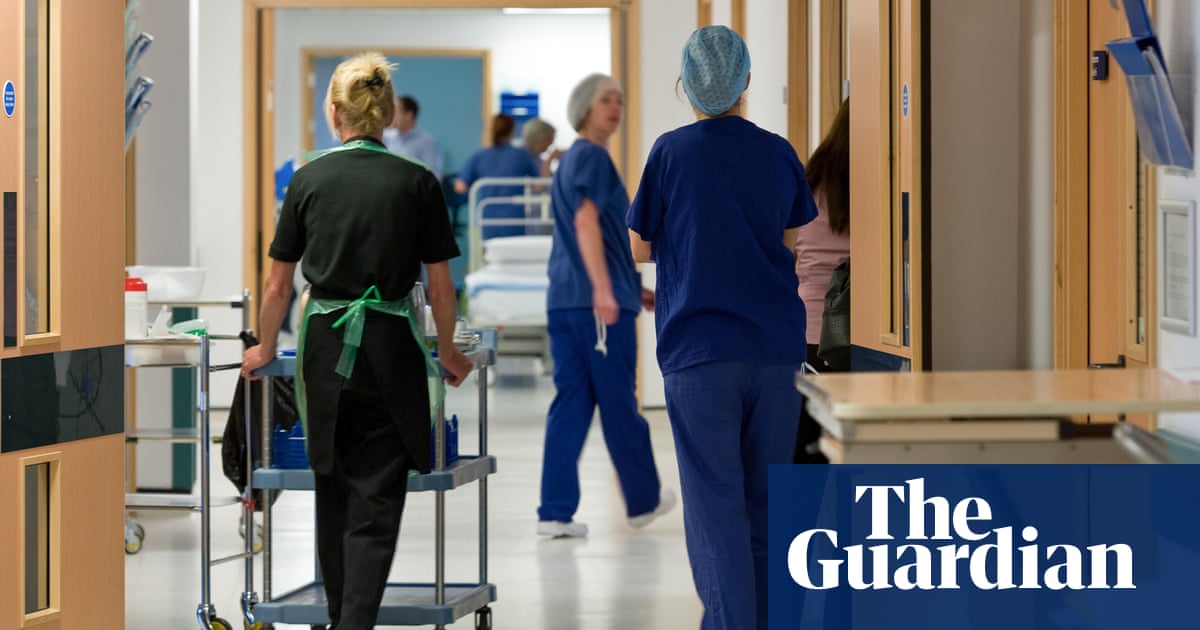Hospitals and GP practices in England will be told to slash the number of overseas-trained doctors and nurses they recruit under government plans for theNHSthat will be published on Thursday.
Graduates of UK medical schools will be given priority as part of a drive to reduce the health service’s dependence on medics from abroad.
NHS care providers will be told to cut the number of doctors they hire from overseas from 34% to under 10% to give homegrown medics a better chance of progressing their careers.
A large and growing number of UK-trained medical graduates have found themselves “in career limbo” after failing to secure a specialty training post – the first step on the ladder to becoming a consultant or GP.
The British Medical Association has said that about20,000 doctors applying for training positionsin the NHS across the UK this year will be denied one in their chosen specialism because there are too few available.
The edict on overseas recruitment will be outlined in the government’s 10-year plan to improve the NHS and public health in England. It will say that UK-trained doctors will be given priority for places in NHS postgraduate medical training.
The plan highlights that the world is likely to be facing a shortage of 11 million health professionals – doctors, nurses and midwives – by 2030 due to the ageing population and growing demand for healthcare.
“That means it will neither be possible nor ethical to maintain our current levels of international recruitment. We need to reduce the NHS’s dependence on overseas staff from its current level, where 34% of new recruits have a non-UK nationality,” the report states.
The NHS in England has employed much larger numbers of overseas-trained doctors, nurses and midwives in recent years, especially since 2020, the year the UK left the EU as a result of the 2016 Brexit vote.
Many doctors are from India, Pakistan and Nigeria while a significant numbers of nurses are from India and the Philippines.
Some are from poor “red list” countries in Asia and Africa that the WorldHealthOrganization has urged wealthier nations not to recruit directly from because it could weaken their health systems.
Wes Streeting, the health secretary, has repeatedlycriticised the NHS for employing too many foreign doctorsand said recruitment from “red list” countries was “immoral”.
A separate section of the 10-year plan promises to “tackle bottlenecks in medical training pathways”. It blames the last Conservative government for letting international medical graduates apply for places on the same terms as UK graduates.
“Undergraduate medical places have been expanded without a commensurate expansion in postgraduate training places, compounded by the 2020 decision to open competition for postgraduate medical training to international trainees on equal terms with UK-trained graduates,” the report says.
“As a result competition ratios for postgraduate places increased from 1.9 applications per place in 2019 to nearly five per place in 2024.”
The plan says the government will work to prioritise UK medical graduates for foundation training and to prioritise UK medical graduates and other doctors who have worked in the NHS for a significant period for specialty training.
According to the General Medical Council, 329,439 doctors are registered to work in the UK.
Of that total, 188,492 (57.2%) were trained domestically, 25,886 (7.8%) in the European Economic Area – the 27 EU states plus Norway, Iceland and Lichtenstein – and the other 115,061 (34.9%) in the rest of the world, mainly Asia and Africa.
